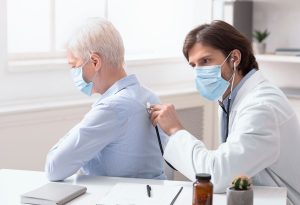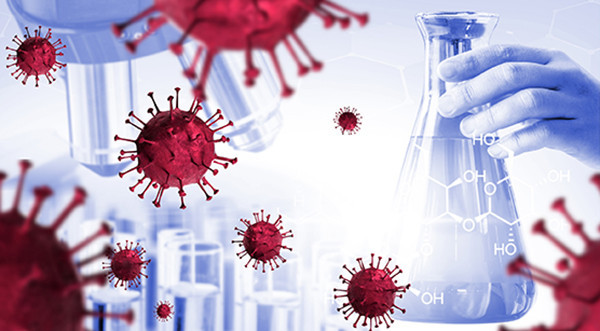
Uncovering Post-COVID-19 Health Challenges
In an ever-evolving battle against the COVID-19 pandemic, new research has emerged that sheds light on what comes after recovery. The World Health Organization (WHO), a globally recognized authority in healthcare, has been diligently gathering data to understand the extended health risks that may follow a COVID-19 infection. As news and updates seekers, you’re about to embark on a journey through the post-COVID-19 landscape, gaining valuable insights that can safeguard your well-being.
World Health Organization
Before delving into the findings, let’s take a moment to get acquainted with the driving force behind this critical research. The World Health Organization (WHO) is a distinguished international organization with a track record of guiding global health initiatives. With a team of dedicated experts and scientists, WHO has been at the forefront of the fight against COVID-19, providing invaluable guidance and resources to nations worldwide.
The Silent Threat: Lingering Health Risks
As the initial wave of the pandemic begins to recede, it’s essential to acknowledge that for many individuals, the battle doesn’t end with a negative test result. Post-COVID-19 health challenges have become a topic of increasing concern. Let’s explore these risks in detail:
Table: Post-COVID-19 Health Risks
| Health Risk | Description |
|---|---|
| Long COVID Syndrome | Persistent symptoms after recovery |
| Cardiovascular Issues | Heart problems that may arise post-infection |
| Respiratory Complications | Lingering breathing difficulties |
| Mental Health Impact | Psychological effects and coping strategies |

Long COVID Syndrome: The Ongoing Struggle
One of the most striking revelations from WHO’s research is the prevalence of Long COVID Syndrome. This condition manifests as a range of symptoms that persist long after the virus has left the body. While some individuals recover fully, others continue to grapple with:
- Fatigue
- Brain fog
- Shortness of breath
- Joint pain
- Sleep disturbances
Understanding the implications of Long COVID is crucial, as it can significantly affect your daily life and overall well-being.
The Heart of the Matter: Cardiovascular Concerns
Emerging data from WHO also highlights the potential impact of COVID-19 on the heart. Individuals who have had the virus may be at an increased risk of developing cardiovascular issues such as:
- Myocarditis (inflammation of the heart muscle)
- Blood clotting problems
- Irregular heart rhythms
Knowing these risks can empower you to take proactive steps in monitoring and safeguarding your heart health.
Breathing Easier? Not Always
Respiratory complications can be another post-COVID challenge. Even after recovery, some individuals may experience persistent shortness of breath, coughing, or chest discomfort. It’s crucial to be aware of these issues and seek medical attention if they persist.
Mental Health Matters
The impact of COVID-19 extends beyond the physical realm. Many individuals face significant psychological stress and emotional challenges during and after their battle with the virus. WHO offers guidance on coping strategies and seeking support for mental health concerns.
Making Informed Decisions: Comparative Table
To help you grasp the key takeaways at a glance, here’s a comparative table summarizing the health risks associated with post-COVID-19 life:
Table: Comparative Overview
| Health Risk | Long COVID Syndrome | Cardiovascular Issues | Respiratory Complications | Mental Health Impact |
|---|---|---|---|---|
| Symptoms | Fatigue, Brain Fog, Joint Pain, etc. | Myocarditis, Blood Clots, Irregular Heart Rhythms | Shortness of Breath, Cough, Chest Discomfort | Psychological Stress, Emotional Challenges |
| Prevalence | Common | Possible Risk | Possible Risk | Common |
| Management | Supportive Care, Rehabilitation | Monitoring, Heart-Healthy Lifestyle | Medical Evaluation, Breathing Exercises | Seek Support, Counseling |
| Actionable Steps | Listen to Your Body, Consult a Healthcare Professional | Maintain Heart Health, Regular Check-ups | Seek Medical Advice, Follow Breathing Techniques | Reach Out for Help, Talk to a Therapist |










